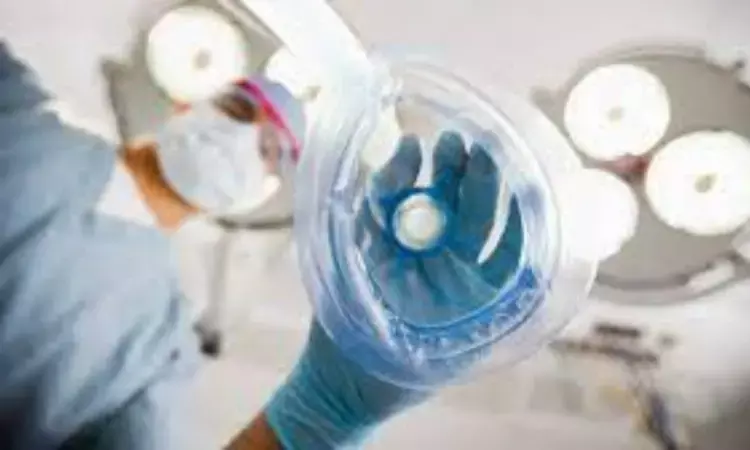- Home
- Medical news & Guidelines
- Anesthesiology
- Cardiology and CTVS
- Critical Care
- Dentistry
- Dermatology
- Diabetes and Endocrinology
- ENT
- Gastroenterology
- Medicine
- Nephrology
- Neurology
- Obstretics-Gynaecology
- Oncology
- Ophthalmology
- Orthopaedics
- Pediatrics-Neonatology
- Psychiatry
- Pulmonology
- Radiology
- Surgery
- Urology
- Laboratory Medicine
- Diet
- Nursing
- Paramedical
- Physiotherapy
- Health news
- Fact Check
- Bone Health Fact Check
- Brain Health Fact Check
- Cancer Related Fact Check
- Child Care Fact Check
- Dental and oral health fact check
- Diabetes and metabolic health fact check
- Diet and Nutrition Fact Check
- Eye and ENT Care Fact Check
- Fitness fact check
- Gut health fact check
- Heart health fact check
- Kidney health fact check
- Medical education fact check
- Men's health fact check
- Respiratory fact check
- Skin and hair care fact check
- Vaccine and Immunization fact check
- Women's health fact check
- AYUSH
- State News
- Andaman and Nicobar Islands
- Andhra Pradesh
- Arunachal Pradesh
- Assam
- Bihar
- Chandigarh
- Chattisgarh
- Dadra and Nagar Haveli
- Daman and Diu
- Delhi
- Goa
- Gujarat
- Haryana
- Himachal Pradesh
- Jammu & Kashmir
- Jharkhand
- Karnataka
- Kerala
- Ladakh
- Lakshadweep
- Madhya Pradesh
- Maharashtra
- Manipur
- Meghalaya
- Mizoram
- Nagaland
- Odisha
- Puducherry
- Punjab
- Rajasthan
- Sikkim
- Tamil Nadu
- Telangana
- Tripura
- Uttar Pradesh
- Uttrakhand
- West Bengal
- Medical Education
- Industry
Opioid free loco-regional anesthesia enhances early recovery in sleeve gastrectomy: Study

Egypt: A recent study published in the journal BMC Anesthesiology showed that in patients undergoing laparoscopic sleeve gastrectomy combined opioid-free and loco-regional anesthesia enhances the quality of recovery.
"While regional anesthesia attained most of the intraoperative analgesia, avoiding intraoperative opioids through the opioid-free anesthesia (OFA) protocol enabled the improvement of various sensible parameters of postoperative functional recovery," Mohamed Ibrahim, Department of Anesthesiology, Faculty of Medicine, Zagazig University, Zagazig, Egypt, and colleagues wrote in their study.
Whether OFA is better suited than multimodal analgesia (MMA) for achieving the goals of enhanced recovery after surgery (ERAS) in patients undergoing sleeve gastrectomy is debatable. Considering this, Dr. Ibrahim and the team aimed to compare the early postoperative quality of recovery between multimodal analgesia and opioid-free anesthesia under ERAS in adult patients undergoing laparoscopic sleeve gastrectomy in a single-blinded randomized controlled trial using the quality of recovery 40 (QoR-40) questionnaire at 6 and 24 h.
Secondary outcomes were postoperative readiness to discharge, time to ambulate, and tolerate oral fluid, degree of pain control, and subsequent opioid consumption.
Following were the study's key findings:
· At the 6th hour, the QoR-40 was higher in the OFA than in the MMA group (respective median values: 180 vs. 185), but no longer difference was found at the 24th hour (median values = 191 in both groups).
· OFA also significantly reduced postoperative pain and morphine consumption (20 mg vs. 10 mg), as well as time to oral fluid tolerance (238 vs. 175 min), and readiness for discharge (505 vs. 444 min), but did not influence time to ambulate.
"Opioid-free anesthesia combined with loco-regional anesthesia is better suited to satisfy the goals of ERAS," wrote the authors. "It provides early improvement of the quality of recovery; reduces opioid consumption; and improves postoperative pain; over multimodal analgesia."
"There is a need for a larger multi-center randomized controlled trial to standardize the optimal anesthetic and surgical considerations in ERAS in bariatric surgery," they concluded.
Reference:
Ibrahim, M., Elnabtity, A.M., Hegab, A. et al. Combined opioid free and loco-regional anaesthesia enhances the quality of recovery in sleeve gastrectomy done under ERAS protocol: a randomized controlled trial. BMC Anesthesiol 22, 29 (2022). https://doi.org/10.1186/s12871-021-01561-w
Dr Kamal Kant Kohli-MBBS, DTCD- a chest specialist with more than 30 years of practice and a flair for writing clinical articles, Dr Kamal Kant Kohli joined Medical Dialogues as a Chief Editor of Medical News. Besides writing articles, as an editor, he proofreads and verifies all the medical content published on Medical Dialogues including those coming from journals, studies,medical conferences,guidelines etc. Email: drkohli@medicaldialogues.in. Contact no. 011-43720751


